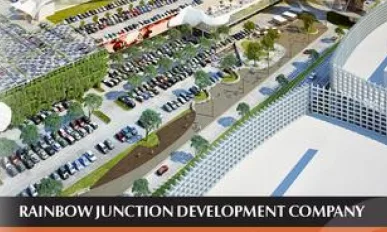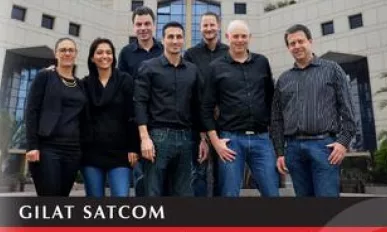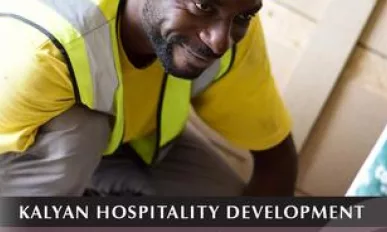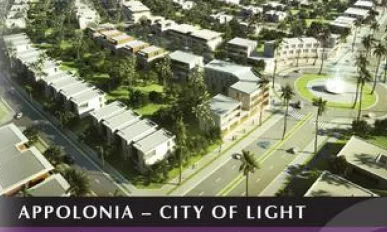Issue 34
Rainbow Junction Development Company
Rainbow Junction is well on its way to realising its potential of ‘building the capital city to towering heights’, evolving Pretoria’s periphery to levels of infrastructure, grandeur and sustainability previously unseen in the country.
Airtel Ghana : Best in Class
Airtel Ghana has confirmed its national rise to prominence in the telecoms market as the country’s leader in data and digital innovation.
Avaya : Leading the Way in Africa’s Digital Transformation
For Avaya, a global leader in business communications software, systems and services, communicating and bringing people together is very much part of its cultural DNA.
Gilat Satcom : Value-Added Connectivity
Gilat Satcom intends to grow into the value-added products and services that bolster the background management of cellular operations, ISP’s and banks to shape the future of technology on the continent.
MTN South Sudan : Setting the Tone for Long-Term Success
MTN South Sudan has spent the past five years working tirelessly to address the existing economic and infrastructural development gaps in the country.
Mars Food South Africa : Championing Sustainability
As one of the world’s most reputed and renowned food manufacturers, Mars Food South Africa is ahead of the game when it comes to efficiencies and sustainable operations.
PCS Group of Companies : Better Results, Better Growth
PCS Group of Companies has developed into a leading importer, distributor and wholesaler of food and beverage products, and is now seeking enhanced diversification across its business arms to capitalise on an ever-broadening international presence.
Janus Services BV : Big Plans for Big Brands
With a presence in 18 markets across West and Central Africa, JANUS SERVICES is targeting internal improvements to improve efficiencies and drive better customer engagement.
Kalyan Hospitality Development Ltd : Making History in Africa
Kalyan Group has long believed that its own development goes hand-in-hand with the social and economic development of the country in which it operates, and has subsequently ingrained itself into numerous industries.
ZPC Group : African Hospitality Specialists
South Africa-based ZPC Group is currently capitalising on lucrative opportunities in West Africa’s hospitality industry; delivering its top quality products on time, on budget and always aiming to exceed client expectations.
Amdec Property Development : Embracing New Urbanism
Amdec Property Development has further solidified its reputation as South Africa’s leading developer of new urban lifestyles in recent years, leveraging its strong network of industry relationships.
Turner & Townsend : Truly Global
Turner & Townsend has spent the past 34 years striking a perfect balance between a replication of its esteemed global business model and an adherence to local considerations in Africa.
Atlas Copco Zambia : Lasting Relationships in a Challenging Market
Having supported the mining and related industries in Zambia for more than 60 years, Atlas Copco has remained true to its Group ethos of providing innovative products, services and solutions that encourage sustainable productivity for a cost-effective price.
Planning Interiors Ltd : Kenyan Flavours Made International
Planning Interiors is bridging the gap between global expectations and East African identity as the interior design firm of choice in a region that promises to be the final domain for international business migration.
Allied Builders (Seychelles) Ltd : The Premier Player in Construction
Allied Builders (Seychelles) Limited continues to change the face of construction in Seychelles as its innovative approach to the most exciting and challenging of projects opens the door to more and more opportunities on the island nation.
Appolonia – City of Light : Leaders in Africa’s Urban Future
With representation in 12 of the 25 fastest-growing economies in the world, including Appolonia, Rendeavour is capitalising on Africa’s economic transformation and the subsequent urban development opportunities.
Victoria Commercial Bank : A Credit to Kenyan Banking
Victoria Commercial Bank (VCB) has built upon a successful 2014 with an even more prosperous 2015 as it continues to capitalise on the positive reputation constructed within Kenya’s finance industry.
Egoli Gas : The Natural Alternative
Egoli Gas has monitored, adapted to and led the way across the energy and gas sector over the past decade, becoming a significant player in South Africa’s natural gas evolution.
Hillcrest Private Hospital : Quality and Care
A four-pronged approach has reaped dividends for Hillcrest Private Hospital over the past 12 months as the ongoing development, diversification and expansion of the building’s facilities maintained, and even gathered further momentum.
BBF Safety Group (Pty) Ltd : A Step in the Right Direction
During the course of the past 14 months, BBF Safety Group (Pty) Ltd has sought to diversify its portfolio and attract new customers from a broader range of sectors.
Ghana Rubber Estates Ltd (GREL) : Staying Flexible
Ghana Rubber Estates (GREL) has placed a concerted focus on strategic ways to improve efficiencies and increase production for minimal cost.
Coca-Cola Sabco Mozambique : Gaining Momentum through Strategy
With an estimated consumer base of 24 million people, Coca-Cola Sabco Mozambique has been increasing its production capabilities by stabilising its distribution network and investing in state-of-the-art equipment.
a.b.e. Construction Chemicals : The Sustainable Building Revolution
Having launched several new products in 2015 to diversify its revenue streams, a.b.e. Construction Chemicals has significantly increased its market share in sub-Saharan Africa.
Ethiopian Airlines : Soaring to New Heights
Ethiopian Airlines continues to receive the acclaim of the surrounding industry, as it goes further than any African operator in bridging the continent to the rest of the world.


























